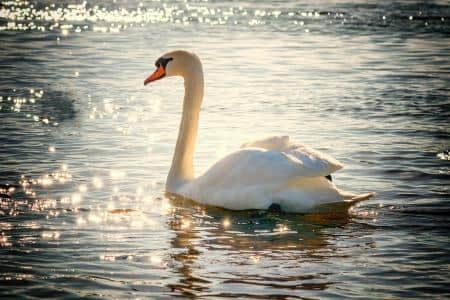Bird Flu: Don’t touch the wildlife warns Bedford council over bird flu fears
and live on Freeview channel 276
Concerns have been raised about an increase in birds dying in and around the River Great Ouse in Bedford – after a case of bird flu was confirmed in a nearby village last month.
Bedford Borough Council has said it is currently unable to confirm their cause of death so are encouraging residents to exercise caution as they work with Defra (Department for Environment, Food and Rural Affairs) to investigate.
Advertisement
Hide AdAdvertisement
Hide AdThe council is encouraging residents to not touch any sick or dead birds and request that if they find any dead or visibly sick birds in the local area, they are not fed or touched. Instead, cases should be reported to Defra’s GB helpline by calling 03459 335577.


A case of bird flu was confirmed in nearby Blunham back in August.
If you keep poultry or other birds, please wash your hands and clean and disinfect your footwear before tending to them.
Councillor Charles Royden, Portfolio Holder for Environment, said: “We are continuing to wait on Defra for the results of their tests.
Advertisement
Hide AdAdvertisement
Hide Ad“We have a daily inspection set up and carried out by our staff to identify any dead birds. We continue to respond to the reports and we will remove the birds as soon as we can. If the birds are in the water then we do need a trained person and equipment, boat to recover them so it can take up to 36 hours to remove.
“We do not want any residents removing or touching dead birds. They are to report them and allow trained staff and the appropriate precautions and safe removal to take place by the authorities.”
A case of bird flu was confirmed in captive birds in the Blunham area in August – with a 3km protection zone being put in place.
All captive birds within the area had to be housed. Bird keepers were also being asked to complete an online survey if they keep birds of any number, species or breed within the zone.
Advertisement
Hide AdAdvertisement
Hide AdBird flu is highly prevalent in wild birds but when a captive bird is infected, the Government put measures in place to prevent the spread in other captive birds in the local area. The protection zone covered Blunham, Church End, Tempsford, parts of Sandy, Roxton and Great Barford.
A Central Beds Council spokesman said at the time: “Signage will be in place in the local area warning residents of the case. Whilst this might seem alarming, bird flu is a very low risk to humans. Humans can only become infected if they touch an infected bird. Bird flu is highly prevalent in wild birds, so it is vital you do not pick up or touch dead or sick wild birds.”
You should call the Defra helpline on 03459 33 55 77 if you find: one or more dead bird of prey or owl, 3 or more dead gulls or wild waterfowl (swans, geese and ducks) or five or more dead birds of any species
